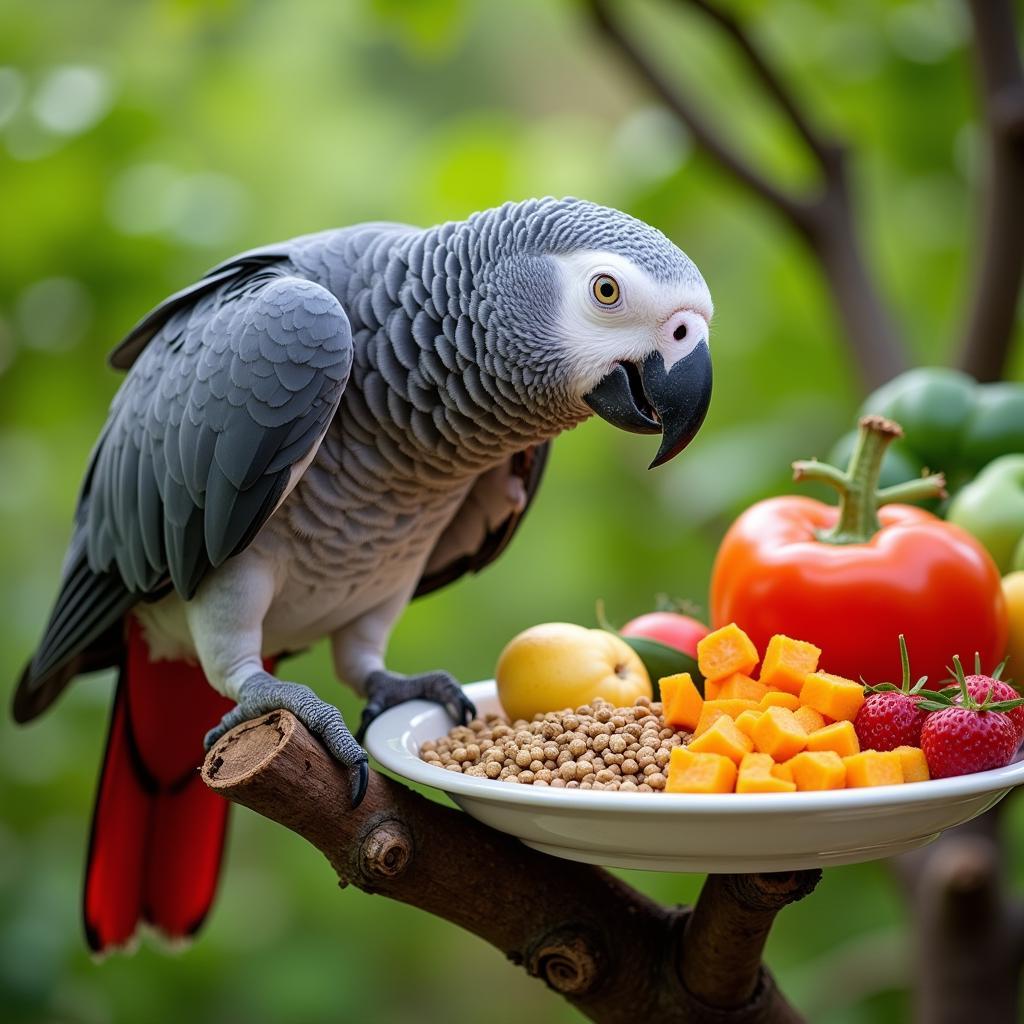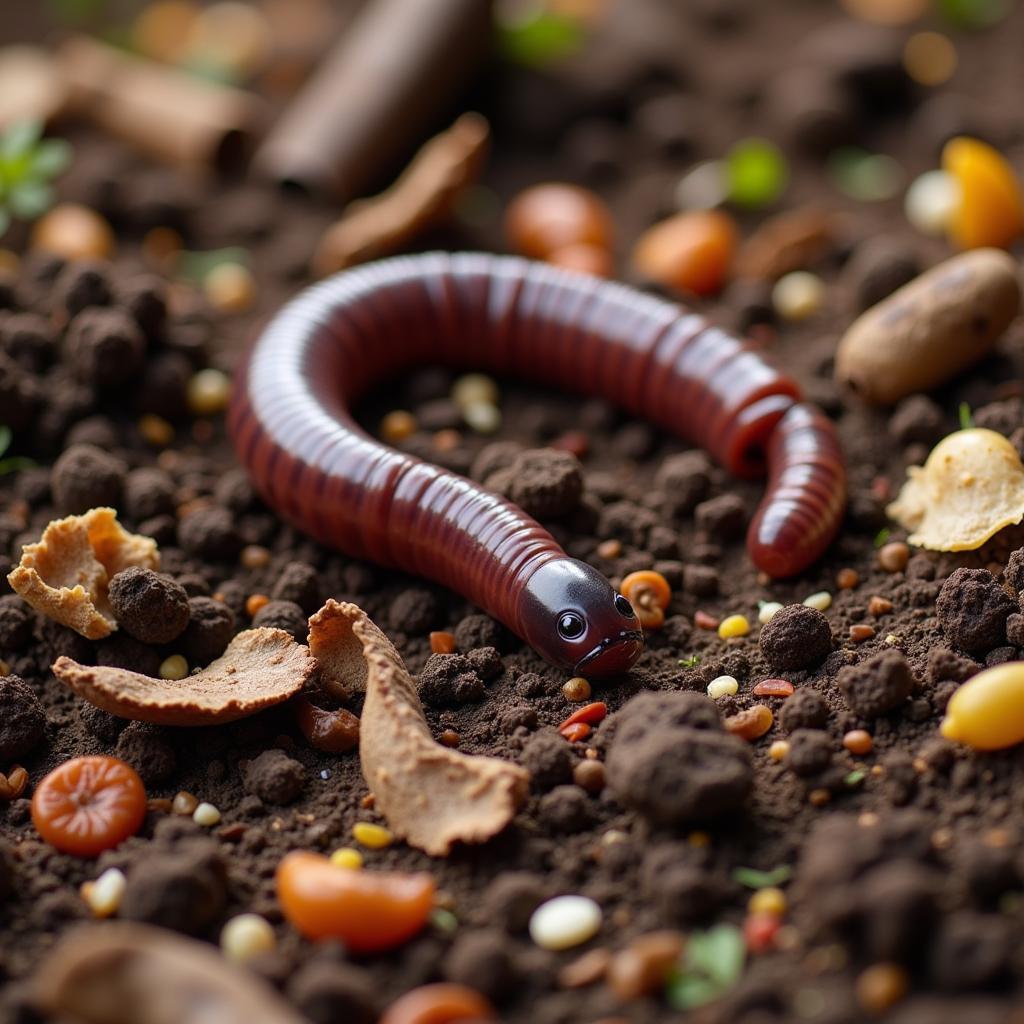African Grey Parrot Health Problems: A Guide for Owners
The African Grey parrot, known for its intelligence and talking ability, is a beloved companion. However, these beautiful birds are prone to specific health problems. Understanding potential African Grey Parrot Health Problems is vital for every owner to ensure their feathered friend lives a long, healthy life.
Common African Grey Parrot Health Problems
Like any living creature, African Grey parrots can experience health issues. Here are some of the most common:
- Feather Plucking: This heartbreaking behavior can stem from stress, boredom, or underlying medical conditions. Addressing this requires identifying and mitigating the root cause.
- Respiratory Infections: African Greys are susceptible to respiratory infections. Signs include sneezing, discharge from the nostrils, and difficulty breathing. Prompt veterinary care is crucial if you suspect a respiratory infection.
- Psittacosis (Parrot Fever): This bacterial infection is highly contagious and can be transmitted to humans. Symptoms in birds include lethargy, loss of appetite, and respiratory distress.
- Malnutrition: A diet solely consisting of seeds can lead to malnutrition. African Greys need a balanced diet of fresh fruits, vegetables, high-quality pellets, and occasional healthy nuts.
- Calcium Deficiency: This is particularly common in breeding females and can lead to seizures. Providing a calcium supplement and ensuring adequate vitamin D3 (through sunlight or a full-spectrum light) can prevent this issue.
Preventing Health Problems in Your African Grey
Prevention is always better than cure. Here are key steps to keeping your parrot healthy:
- Provide a Spacious Cage: A cramped cage can lead to stress and behavioral problems. Choose a cage that allows your parrot to comfortably spread its wings and move around.
- Offer a Stimulating Environment: African Greys are highly intelligent and need mental stimulation. Provide plenty of toys, rotate them regularly, and consider interactive play sessions.
- Maintain Hygiene: Regularly clean their cage, food and water bowls, and toys to prevent bacterial growth.
- Schedule Regular Vet Checkups: Just like humans, parrots benefit from regular checkups. These allow your vet to detect potential issues early on.
 Healthy African Grey Parrot Eating a Varied Diet
Healthy African Grey Parrot Eating a Varied Diet
Recognizing the Signs of Illness
Early detection is key to successful treatment. Here are some signs your parrot might be unwell:
- Changes in Appetite: A sudden decrease or increase in appetite can indicate a problem.
- Lethargy and Weakness: If your typically active parrot becomes unusually quiet and inactive, it could be a sign of illness.
- Changes in Droppings: Any changes in the color, consistency, or frequency of droppings warrant veterinary attention.
- Feather Plucking or Biting: While this can be behavioral, it can also indicate underlying health issues.
- Respiratory Distress: Noisy breathing, wheezing, or discharge from the nostrils are all signs of potential respiratory problems.
The Importance of an Avian Veterinarian
Don’t wait for symptoms to appear before seeking professional help. Finding an avian veterinarian experienced with African Greys is essential for your bird’s well-being. They can provide preventative care, diagnose illnesses, and offer treatment options tailored to your parrot’s needs.
Conclusion
African Grey parrots bring joy and companionship to countless lives. By understanding the common African Grey parrot health problems and prioritizing preventive care, you can ensure your feathered friend lives a long, healthy, and fulfilling life. Remember, a proactive approach to your parrot’s health is always the best approach.
FAQs
Q: How often should I take my African Grey parrot to the vet?
A: It’s recommended to schedule a checkup at least once a year, even if your parrot seems healthy.
Q: What should I feed my African Grey parrot?
A: A balanced diet should consist of fresh fruits and vegetables (make sure to learn about African grey parrot food to avoid), high-quality pellets formulated for African Greys, and occasional healthy nuts.
Q: How can I tell if my African Grey parrot is stressed?
A: Signs of stress can include feather plucking, biting, changes in vocalization, and decreased appetite.
Q: Can I catch diseases from my African Grey parrot?
A: Yes, some bird diseases, such as psittacosis, can be transmitted to humans. It’s important to practice good hygiene, wash your hands thoroughly after handling your bird or its belongings, and consult with a healthcare professional if you have any concerns.
Q: How can I encourage my African Grey parrot to exercise?
A: Provide a spacious cage, plenty of toys, and consider teaching your parrot tricks that encourage movement. You can also learn more about setting up an engaging African grey parrot cage setup.
Do you have other questions? Here are some topics that might be helpful:
- Learn about the different African love birds types and their unique characteristics.
- Discover the natural African grey parrot diet in the wild and how it can inspire a healthy diet for your pet parrot.
- If you’re considering breeding, find out the appropriate African grey parrot breeding cage size to ensure the well-being of the parent birds and their chicks.
For any further assistance or inquiries, don’t hesitate to contact us:
Phone: +255768904061
Email: [email protected]
Address: Mbarali DC Mawindi, Kangaga, Tanzania
Our dedicated customer support team is available 24/7 to assist you with any questions or concerns.

